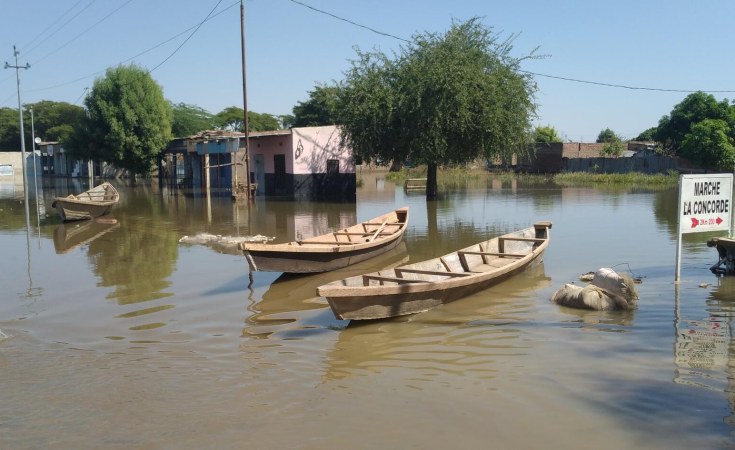The debt profiles, especially of countries in the global south, are rising, with many are now adjudged high-risk countries, keeping investors far from them
The World Bank's President Ajay Banga on Friday said the bank would create a catastrophe toolkit in response to calls for a reform in the global financial architecture.
The debt profiles, especially of countries in the global south, are rising, with many now adjudged high-risk countries, keeping investors far from them. Most of these countries are also the worst hit by climate change. To cater to their disaster-prone population and communities, they continue borrowing at ridiculous interest rates.
Addressing these debts is one of the many development questions that brought about the just concluded summit for a new financial pact and a transformation of the Bretton Wood initiative, which birthed the World Bank.
Mr Banga, who recently assumed office as the new president of the World Bank, attended the summit in Paris. In agreement to the arguments made from Thursday morning through Friday, at a press conference, said the toolkit will be comprehensive and address crisis preparedness, response and recovery.
The World Bank will achieve this in five ways, he said.
The multilateral bank will help governments build advanced emergency systems to respond immediately when an emergency hits. This will allow more countries to build emergency systems and have quick-disbursing finance available in times of crisis.
Additionally, it will provide new types of insurance to back development projects, allowing work to get back on track quickly.
"We actually have these bonds out now in Peru and Jamaica, and the idea is to scale and replicate them to other parts of the world," he said.
According to Mr Banga, this approach will enable businesses to sustain operations and protect jobs, building resilience and long-term sustainability.
The bank also plans to give countries new flexibility to quickly redirect some of their funds for an emergency response to make cash immediately accessible. This will allow countries to immediately repurpose a portion of their lending portfolio for emergency needs when a crisis occurs, including redeploying undisbursed funds in longer-term infrastructure projects for immediate disaster response.
Perhaps the most important to countries in the global south is the plan to pause debt repayments so that countries can focus on what matters and not worry about the bills.
The catastrophe insurance in the World Bank's lending products will enable insurance premiums and interest to be covered through the generosity of others and give countries recovery resources without adding to their debts.
What does this mean for Africa?
Dan Kunle, a Nigerian energy and business consultant, said Africa needs to see the criteria the World Bank is adopting to grant the reliefs. He is certain these criteria will differ from country to country because smaller countries with huge debts and climate hazards will get more urgent attention and possibly generous interventions than bigger countries that are less exposed.
Acknowledging that Africa is faced with poverty and instabilities, including climate change, Mr Kunle noted that "each country in Africa may have to develop their framework for the World Bank offerings because of the peculiarities from region to region.
"Carbon emissions and reductions are paradoxes that national leaders must confront as is the case in China and Germany. Can African countries meet the minimum requirements of the developed countries who are the major inducers of both emissions and reductions now?"
Mr Kunle added that the delicate process of balancing would attract experts and a sustainable period to attain the desired equilibriums.
For Nigeria to key into this, he said the government needs to rapidly study the World Bank's criteria for such reliefs and quickly develop a framework to capture the dynamics surrounding climate change and poverty.
"Nigeria must exhibit transparency in her poverty reduction programme and energy transitions from fossils to clean power", if it must access these reliefs.
A private-sector investment lab
Mr Banga stated that trillions are required to address the challenges confronting the world today, stressing that development banks, government and philanthropists alone cannot address them, and "so we need the private sector."
He added: "Our efforts over the years have not come nowhere near what we need to be showing as an output."
He said this had led the bank to try a new approach called the private sector investment lab, designed to identify and remove the barriers preventing private investment in emerging markets.
"The lab will put an emphasis on scaling transition finance; the initial focus is renewable energy and sustainable energy infrastructure," Mr Banga added.


